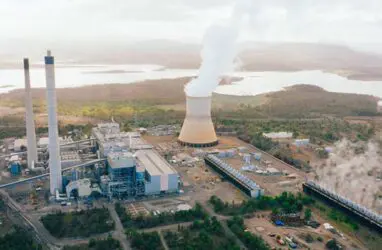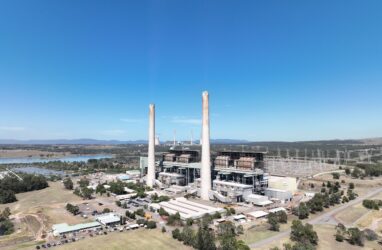Feed aggregator
China space probe returns with rare Moon rocks
Protecting just 1.2% of Earth’s land could save most-threatened species, says study
Study identifies 16,825 sites around the world where prioritising conservation would prevent extinction of thousands of unique species
Protecting just 1.2% of the Earth’s surface for nature would be enough to prevent the extinction of the world’s most threatened species, according to a new study.
Analysis published in the journal Frontiers in Science has found that the targeted expansion of protected areas on land would be enough to prevent the loss of thousands of the mammals, birds, amphibians and plants that are closest to disappearing.
Continue reading...Newly identified tipping point for ice sheets could mean greater sea level rise
Small increase in temperature of intruding water could lead to very big increase in loss of ice, scientists say
A newly identified tipping point for the loss of ice sheets in Antarctica and elsewhere could mean future sea level rise is significantly higher than current projections.
A new study has examined how warming seawater intrudes between coastal ice sheets and the ground they rest on. The warm water melts cavities in the ice, allowing more water to flow in, expanding the cavities further in a feedback loop. This water then lubricates the collapse of ice into the ocean, pushing up sea levels.
Continue reading...BRIEFING: ETS2 debate heats up ahead of EU leaders’ summit in Brussels
Gold Standard releases global carbon markets policy tracker
NGOs call on Malaysian exchange to drop ‘questionable’ Sarawak project
Carbon capture firm kicks off pilot at cement plant in Italy
Swiss carbon removal project developer raises $69 mln to scale capacity
Rising sea levels will disrupt millions of Americans’ lives by 2050, study finds
Floods could leave coastal communities in states like Florida and California unlivable in two decades
Sea level rise driven by global heating will disrupt the daily life of millions of Americans, as hundreds of homes, schools and government buildings face frequent and repeated flooding by 2050, a new study has found.
Almost 1,100 critical infrastructure assets that sustain coastal communities will be at risk of monthly flooding by 2050, according to the new research by the Union of Concerned Scientists (UCS). The vast majority of the assets – 934 of them – face the risk of flood disruption every other week, which could make some coastal neighborhoods unlivable within two to three decades.
Continue reading...How quickly does groundwater recharge? The answer is found deep underground
“Catastrophic missile:” Report blames coal power plant explosion on safety breaches
The post “Catastrophic missile:” Report blames coal power plant explosion on safety breaches appeared first on RenewEconomy.
Australian regulator fines carbon developer hopeful over greenwashing allegations
“Stick to the facts, stick to the plan:” Energy minister urges industry to ignore nuclear “fantasy”
The post “Stick to the facts, stick to the plan:” Energy minister urges industry to ignore nuclear “fantasy” appeared first on RenewEconomy.
Wärtsilä unveils world-first 100 pct hydrogen-ready power plant
The post Wärtsilä unveils world-first 100 pct hydrogen-ready power plant appeared first on RenewEconomy.
Denmark rolls out major initiatives to cut agricultural carbon emissions, restore nature
Resting cuckoo bees win insect photo competition
AGL plans huge solar recycling plant at retired coal site that Dutton wants for nuclear
The post AGL plans huge solar recycling plant at retired coal site that Dutton wants for nuclear appeared first on RenewEconomy.
Korean tech firm, Japanese exchange operator partner to accelerate Asian voluntary carbon market
Bowen says massive capacity scheme for renewables may come at no cost to taxpayers
The post Bowen says massive capacity scheme for renewables may come at no cost to taxpayers appeared first on RenewEconomy.








